#the most powerful thing we can do to her is make her irrelevant
Explore tagged Tumblr posts
Text
Revolutionary Girl Utena: Gender in Context
beneath the cut, I discuss the RGU's portrayal of gender in the context of 1990s Japan.
in Ikuhara's interview with Mari Kotani, he stated that in traditional Japanese society, "prince" meant "patriarch." the same is true in Western societies--there was a time when a prince would be an heir to a royal line. by 1997, this meaning had died out of large parts of the world. even the association between princes and traditional masculinity was fading. Saionji, the weakest, most pathetic man in the show, is a parody of historical Japanese masculinity, with his kendo and his blatantly regressive beliefs about women.
in RGU, prince may still mean patriarch, but in a far more subtle fashion. Ikuhara and Kotani discussed the changing expectations for men in the latter half of the 20th century--it became gauche to fight over a woman with one's brawn, so instead, power struggles were played out in the arena of looks and sex appeal. one can see this reflected in the character Akio, whose power as a prince arises from his ability to turn "easy sensual pleasure based on dependency" "into a selling point with which to control people."
Akio has his moments of showboating masculinity, but when preying on Utena, he operates by making himself seem non-threatening and soft.
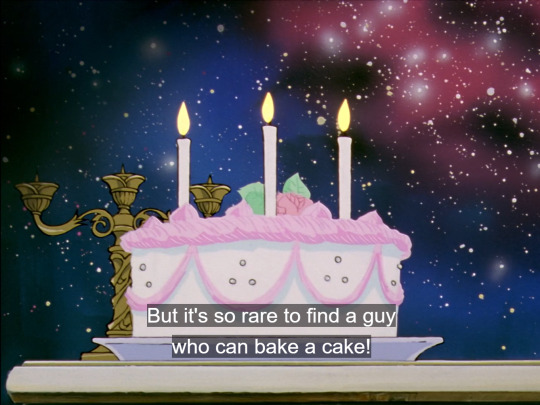
not only that, but he purports to want to allow students to express their individuality and thus approves of Utena's masculine form of dress. this is a front--by the end of the show, he's telling Utena that girls shouldn't wield swords. thus, through Akio's character, the show argues that traditionalist patriarchy in Japan isn't gone, but instead has only been papered over with false progressivism.
with all that said, there seems to be more to the character. he's taken the family name of his fiance, Kanae, and whatever material power he has in the school is dependent upon her family. in Japanese society, this is considered a humiliating position to be in, something that only a shameless man would do. the show never gives the audience any insight into how Akio feels about this--is he unbothered entirely, or are his actions against the Ohtori family an expression of his repressed anger? does he harm the children under his care to compensate for his humiliation?
this aspect of Akio's character may seem irrelevant in light of the larger, immaterial social forces at work in the show. however, I would argue that it was included for a reason. Akio, despite his status as ultimate patriarch of Ohtori, is in fact a highly emasculated character, to the point where lead writer Enokido even said that he is driven by an infantile mother complex.
to explain why Akio was portrayed this way, we have to discuss Japanese history. the nation suffered a major defeat in WWII and was forced to accept whatever terms the United States laid out for it. for an examination of how the Japanese have never truly processed those events and have plunged into modernity with reckless abandon, I recommend Satoshi Kon's Paranoia Agent. to sum it up briefly, in a very short period, the nation regained its economic footing, and by the 1980s had the largest gross national product in the world. this economic boom may have allowed Japan to maintain a sense of sovereignty, dignity, and power, but it was inherently fragile.
the infamous "bubble economy" lasted from 1986 to 1991. during this time, anything seemed possible; financial struggles appeared to be a thing of the past, and capitalist excess reached new heights. the ghosts of this period can be felt across Japanese media; for instance, think of the final shot of Grave of the Fireflies (1998), where the two dead children look down on Kobe, glowing an eerie green to imply its impermanence. the abandoned theme park from Spirited Away (2001) is explicitly referred to as a leftover from the previous century, when many attractions were built and then tossed aside in a few short years.
the bubble popped in 1992, leaving an entire generation feeling cheated. the bright futures they'd been promised, which had actually materialized for their parents and older siblings, had been lost to them overnight. economic crises are often accompanied by gender panics. to quote from Masculinities in Japan, "The recession brought with itself worsening employment conditions, undermining the system of lifelong employment and men’s status of breadwinners in general. The unemployment rate was rising, and although it never reached crisis levels, men could no longer feel safe in their salaryman status. Their situation was further complicated by the rising number of (married) women entering the workforce."
with this in mind, Akio's character can be taken as a representation of masculinity in crisis in 90s Japan. he's forced to rely on women for his position in life and has failed to save his only relative, Anthy. he tries to escape his misery through hedonism, perhaps an allegorical representation of how men tried to maintain their old standard of living after the economic bubble burst.
but of course, Akio is not the main character of RGU--the story is about girls. mangaka Yamada Reiji discussed the series in the context of the 90s, stating the following:
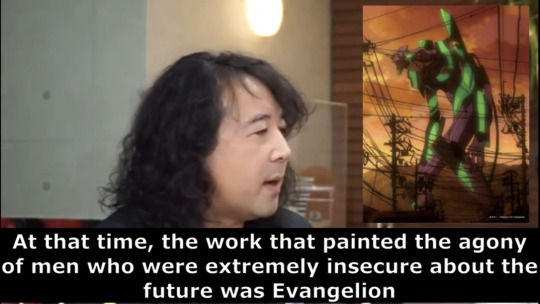
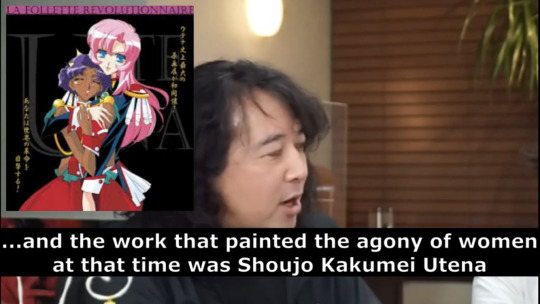
while I opened this essay by discussing the prince, the same points could be made about the princess. despite the increasing irrelevance of royalty, princess is still an important concept. how does it relate to the socioeconomic landscape of the 90s?
in Yamada's view, RGU is full of relics of the 80s; for instance, the figure of the ojou-sama, an entitled young woman who never lifts a finger for herself. during the economic bubble, it was increasingly common for women to be entirely taken care of by the men in their lives. Yamada names Nanami as a clear ojou-sama type character: she weaponizes her femininity, demanding to be rescued, doted on, and served.
however, by 1997, the ojou-sama could no longer expect to get what she wanted. from the 80s to the 90s, the percentage of women in the workforce increased around 15%; it was no longer viable for most women to be "kept" by their families. as the men experienced the humiliation of not being able to provide for their wives and children, women were undergoing a disillusionment of their own.
Yamada blames Disney for creating the ideological structure which led women astray. obviously, the company is known for its films about princes rescuing princesses. in Yamada's recounting, during the 80s, the company was infiltrating Japan through its theme parks as well; across the country, Disneylands were opening up, and people were buying into the escapism the corporation offered. Japan, as America, became a country of eternal children. its people were waiting for a prince to appear and save them.
but fairy tales can't stave off reality forever. Yamada claims that RGU embodies the rage of young women who woke up one day and realized that they had been raised on a lie. this anger pervades the work from beginning to end.
though RGU was created in a particular social context, its lessons can be extrapolated to any time and place. as the first ending tells us:
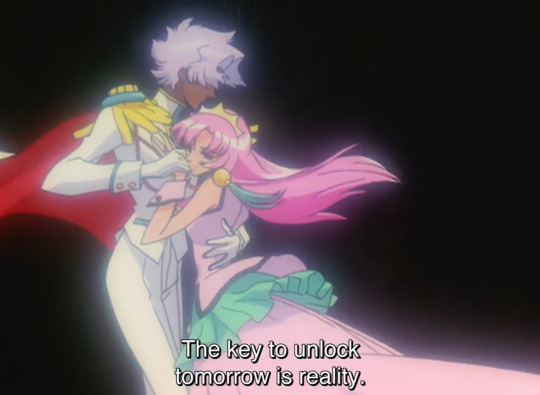
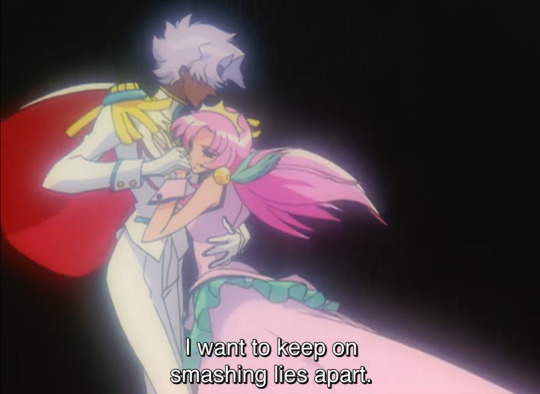
I hope this essay helped provide more context for the series. thanks for reading!
#rgu#commentary#revolutionary girl utena#this was originally a part of another essay but i revamped it and added a lot more detail
887 notes
·
View notes
Text
i cackle at how antis echo chamber “louis hates larries” as if that’s so moving oh wow 1. most of it is pr drivel slobbering down his mouth and 2. even if there is truth to it and he doesn’t like that we know too much—being silent is something i can’t do. this is bigger than louis.
this is knowledge and knowledge is safety. knowledge is how you become aware of situations so you don’t fall victim to them and end up controlled by a tyrant like simon FOUL. knowledge is what louis & harry didn’t have as preyed upon CHILDREN that were eaten alive. bcos of that lack of knowledge (FOR ME) larry is more than a ship. it is a goddamn lifestyle (and no asshole) not in the way that it’s a cult, but in the way it literally teaches you the horrors of life and how to navigate those horrors and find power in community.
do you really think the larries didn’t play a factor (A FACTOR NOT EVERY FUCKING FACTOR READING COMPREHENSION) where harry felt safe enough to be more open and explore himself after 1d? do you think larries were not the backbone for louis while he was in that slave contract for 5 years after 1d? and no i’m not crediting solos bcos most of y’all believe the bullshit.
LARRIES are one of the FEW fandoms to recognize, dissect, and expose the insidious shit that goes on bts in the music industry. call us sleuths, detectives, free journalists whatever the fuck i’m sure they’ll teach a class on us one day about the dedication & power a fandom can wield and how those who are threatened by that power use gaslighting and bullying tactics to silence it. larry is not a conspiracy. it is the fucking truth in your blind eyes that your comfort and privilege won’t allow you to see. it wasn’t too long ago the general public thought britney spear’s fans were crazy for noticing shit was off with her FOR YEARS, but despite all the bullying they never gave up and the free britney movement happened. MANY of the people who joined the movement were og deniers btw but again people only join when it’s comfortable or brings clout.
and JEEBUS britney was the biggest fucking pop star in THE WORLD and yet she was being heavily controlled and abused and it was so unfathomable to you? so many of you were so fucking suprised but HOW? HOW WERE YOU SURPRISED??? you thought her breakdown was for shits and giggles? you thought she shaved her head and smashed a window bcos she was having a good time? but let me not even get started on how GROTESQUELY some of you treat addicts and then you fucks will say “ok so it happened to her but that doesn’t apply to your conspiracy loser blah blah” ok brainwashed fool—it is literally a copy of a copy of a copy, a p a t t e r n, a vicious cycle, A SYSTEM. what makes you think if the biggest pop star in the world wasn’t exempt the biggest boy band in the world was? the biggest boy band who again were manipulated and groomed as CHILDREN by the devil himself. and simon never hid he was the devil btw. when you have knowledge and life experience (god forbid trauma) these people can never hide who they are but so many of you still close your eyes to them?
like omfg supporting larry is so simple??! it is fighting for QUEER JUSTICE and QUEER LOVE and making space for queer artists to be themselves openly and not have their love be the thing weaponized against them to destroy them. queer artists should NEVER have to choose between their souls and their dreams. NEVER. THAT is why i became a larrie in 2012, am a larrie now, and will always be a larry truther. their relationship status and the decisions they make i might disagree with is irrelevant to this. the history is what’s important.
#y’all don’t want me speaking up in this fandoms cos i don’t sugarcoat shit#i have always followed the beat of my own drum and THE LOUIS I KNOW would 100% back that#larry stylinson#antis fuck you#and fuck simon cowell hell isn’t hot enough for you#and rip liam this fight is also for you too :/#i know how much you supported them#and god knows what happened to you#you were only beginning to speak out :/
99 notes
·
View notes
Note
people have been fawning over how humanlike the gods are for a month now, but now its wrong to compare them to mortal powers because they're otherworldy beings that can't possibly be thought of in human terms? or is the suggestion that they're like mortals, but they're just an innately superior group of people that deserves to have power over everyone else?
Hello anon! Are you the same person who got all up in my askbox yesterday? You certainly seem to have an equally poor grasp on what I actually said and a willingness to make it somebody else's problem. However, I no longer have a headache and am feeling less cranky, so lets treat this as a genuine question.
I never said it's wrong or even inaccurate to compare the gods to humans/mortals. What I said is that some seem over-eager to equate them with groups or systems where they don't actually fit, or to project our own world onto them. This tends to lead to poor textual analysis. For example, equating the gods with mortal rulers (specifically tyrannical rulers, even), the one percent, a higher social class, rich people, or colonizers of mortals all read as comparisons made from the assumption 'gods are the most powerful sentient beings of Exandria; therefore I will compare them to the most powerful people of our world'. Do these comparisons make actual sense as parallels? No! Kings and rich people and colonizers aren't innately more powerful than others because we don't live in a fantasy world where magic is real. You can take said power from them and redistribute it fairly. You cannot do this with the gods.
Ultimately, the last few words in your ask neatly sum up the problem with this mindset: do the gods deserve to hold this power over everyone else? Lets look at this through a comparison: do sorcerers like Imogen deserve to hold power over everyone else? She, like most sorcerers, was born with powers others do not have and has no way to get rid of them. They cannot be taken from her and redistributed to the masses to make things more equal, because they are a part of her innate self. In using them, Imogen can do good, but she also sometimes ends up hurting people by reading their thoughts without consent or, at times, even meaning to. So, does Imogen deserve this power? By now, you might see the problem. It doesn't matter whether she deserves her power because you can't take it from her without killing her, no matter how unfair you think it is that she has it. 'Do they deserve their power' is an irrelevant question that people keep coming back to. What you're actually asking is, 'do the gods deserve to live', or even 'do we have the right to kill them' which is a lot more loaded.
The gods already evened the playing field as much as was possible by locking themselves behind the divine gate, severely diminishing their influence on Exandria. They can no longer cause any more harm than any mortal, because now they must act through mortals such as clerics and paladins, through which they do a lot of good (or have we already forgotten about c1 and c2, or even the resurrection of Laudna by a divine cleric and the actions of FCG in c3?). If this still isn't enough for you, you might want to ask yourself whether what you actually want is fairness and the good of the people of Exandria, or if you're just looking for pointless revenge for the sake of it.
#critical role#cr3#nella gets asks#nella talks cr#anyway. this has been fun (lmao no) but i'm turning anon off now#if you want to genuinely discuss the show feel free to hit me up!#if you just want to harass someone for holding a different fandom opinion than you you might want to try deep breaths and soul searching
218 notes
·
View notes
Text
IM FUCKING OBSESSED WITH THIS NEW EPISODE????? THE RULER MAY BE THE BEST EPISODE IN MY EYES OF THE SEASON SO FAR???
I have so many things to say soooo warning for spoilers below
1. Genesis has limits!! We don't see it very clearly but the item's disappearance when Marc makes new ones or when they're knocked out his hands. SO I think the limitation of genesis is focus. You have to be thinking of the item and focused. It gets knocked out your hands and you get surprised? It's gone. Plus it has to be something you can imagine it seems.
2. I'm obsessed with Nath's fighting style. My boy had marker knives. MARKER KNIVES. He used a big paint pallet as a shield!!! A big ass pencil as a javelin!!! And he's so cute doing it! (That being said, I'm still gonna be calling him Caprisun 💙🖤🤍)
3. The most overt queer metaphor I have ever seen, and I watched 'I saw the TV glow' over the weekend. Legitimately. At what point does it stop being subtext and just become the text cause I feel like at this point it's just the text. I'm fucking obsessed with it I adored this episode I will be rewatching it for the rest of time. Nath transforming in a closet, "set him straight", the hand holding, the just straight up gay nights that clearly reflect nathmarc and adrinette??
4. The adrinette subplot. A. peak fanfic vibes I am obsessed. Love me a good sickfic. B. I've seen some posts talking about the adrinette subplot seeming like it was irrelevant (though I haven't see anyone complaining about that and I agree even if it wasn't it was adorable and I love a good character development filler subplot), but I disagree. I think having a subplot for adrinette, legitimately no matter what it was, was a really good call. The parallel between Marc and Nath's story and Adrinette's lives are so obvious, and it leads me to a faint theory.
4.5. (Said theory) I think Mari or Adri are gonna make a wish. I think it might be Adri especially? Or Adri does the miraculous Chat Noir on something serious? Something bad is gonna happen, like real bad, and their gonna loose their powers, but a wish or a big event are gonna fix it while also revealing identity. That's the direct parallel right?
5. Another theory based on The Ruler and El Toro, I think episode 22 is not only gonna be akuma!mari, which I think is a common theory (Seriously 'Lady Chaos' really sounds like akuma!mari). But I also think it's gonna be caused by an issue with her parents, or Natalie. Marinette has been doing her best this season with all the parenting struggles happening for her friends. Ivan's dad being a dick, Jules struggling with her dad being absent her whole life and suddenly giving all the attention and love to her twin, and now Nath's homophobic mum. This season has a really strong theme of parental issues, almost like one of the main character's abusive dad just died and it's up rooted his life hmmmm. Mari's family isnt perfect. Dearest family and Simple Man are good examples of that. And Natalie's now debatable alliances, when Natalie is a very trusted adult for Marinette. I think this is building up to something for Mari family wise, maybe even this causing a reveal of the Gabe secret.
6. I'm obsessed with that reveal. The transformations? I swear I've read that in adrinette fanfics 100 times and that makes it so perfect for marcnath. Them, who bonded over ladybug self insert fanfic when they first met? Its Fucking Perfect. It's so them. Nath has probably read that type of fic 100 times, those fics were probably running through his mind in that moment. It is perfectly beautifully them. Whoever on the writers team thought of that, I would do anything just to get them to give me critique on my scripts because their clearly a genius.
7. I might make season 6 Marc my new pfp. I'm obsessed with him. I am fucking loving this season, and honestly even rose's design is growing on me. Juleka's and Zoe's are still my favorites, but Marc and Alya are getting close to taking over the more I see them.
#miraculous ladybug#miraculous season 6#miraculous ladybug spoilers#ml spoilers#ml season 6#marcnath#adrinette#episode review#or rant take your pick#ml the ruler#miraculous ladybug the ruler#(:#caprikid#goat miraculous
69 notes
·
View notes
Text
Fuck it, I'll say it. Marinette taking the risk to kill Adrien in Werepapas by ignoring 5 lucky charms, just to avoid there being a slither of a chance that she has to have an uncomfortable conversations or face consequences for HER actions by Adrien having NORMAL emotions, is not as big of a leap as people make it out to be.
Cause Ephemeral exist. And yes, that episode COUNTS. You don't get to decide that canon episodes aren't canon. And, no, what happened there isn't irrelevant because of the time loop. Most of the episode takes place outside of it and the Marinette we saw in it is literally the same Marinette as ours, the second time around she was just forced to turn back around instead of keep walking down the awful road she chose herself to take advantages of Chat Noir that set his doom in motion.
And that's the thing that makes Werepapas now just the next worse step to take for her instead of a whole leap. In Ephemeral, Marinette initially went on about how blameless and gorgeous she is for abusing Chat Noir's trust because that'll "keep him save" from Suhan taking his Miraculous (which is so stupidly nonsensical because now Suhan had all the power and information on Chat Noir behind Adrien's back that he could take Adrien's Miraculous without Marinette's being told of it first. Not that she ever thinks about Chat enough to notice that) and it'll keep THEM save from Shadowmoth getting both of them if either of them gets akumatized.
Marinette justified her whole awful and downright toxic and power-and-trust-abusing plan with the explanation of "it's for safety reasons"
Only to immediately throw all of that out of the window the second she sees that Adrien is Chat Noir and, to put it bluntly, she has a chance to get in his pants and have him be her perfect care taker and Prince Charming.
Marinette in Ephemeral disregarded ADRIEN'S safety BECAUSE it's Adrien and her reward was more important to her. There is no way around this. Werepapas is not out of character or far fetched, Marinette has been acting like this since season 4, you all just ignore it and think acknowledging it is "salt".
Marinette, canonically, looked in Adrien's eyes and decided that him being himself makes his safety worth being risked so Marinette can have her chance of getting in his pants as her perfect care taker and prince charming.
Werepapas CANT be out of character for her, her actions line up with previous characterization of hers to risk Adrien for her personal short term benefit and comfort, just taken one more step further which at this point is also perfectly in character for Marinette to do.
#miraculous ladybug#miraculous#ml spoilers#ml werepapas#ml Ephemeral#marinette critical#and thats me being kind to that it this way#im literally just discussing her on screen character#and yes Ephemeral COUNTS no matter if you dont like it
88 notes
·
View notes
Text

this has always been one of my favorite lines in this scene it’s so striking to me. i think debating over callum’s level of lucidity and what can or cannot “fix” him is deeply antithecal to what the story is trying to express with him - but the idea that callum is still there and still a person who does have the capacity to love mingus, just not in a way she can ever comprehend or accept, because she can't comprehend or accept anything outside her narrow worldview, is sooooo good.

there is no way of actually knowing if callum is proud of mingus, much less recognizes her at all - but it's added to by the fact there's only so much of that she would accept even if he could. ultimately, she wants validation and power, his prestige, from him, she wants a supportive parental figure she never had - there's only so much of that callum is able to provide even in a world where her stint to fix his memory actually worked. he's like a hundred. he never even MET her. to say nothing of all he's missed in the past fifty-odd years. to say nothing of how his age may have messed with his mind deteriorating even without the pre-existing brain damage.

and mingus' phrasing here implies he doesn't even look at her when she visits - which brings me to the visit that radicalized her: the one after her surgery, where he was watching gingi out the window.
obviously, callum watching gingi is mostly for the thematics of it all, how similar the two of them are in ways mingus refuses to recognize, but theres also the thought of... callum's been sitting alone in that room for over half his life, barely lucid if at all. of course he's going to be drawn to a brightly-colored thing making noises and knocking stuff over outside. if he can't respond to stimuli of the people around him he's at the very least going to latch onto something more visually interesting than Brown Wall and Brown Figure.
but it's not like mingus can think of it like that, because she's internalized so much about her grandfather and built up such a specific, personalized vision of him - she doesn't see him as an elderly man with (a fictional equivalent to) dementia, she sees him as President Callum Crown™, the man she personally has to please and live up to the legacy of and make proud, disregarding the fact that's not something he has the mental capacity to even do - because she's so obsessed with validation and complete control that the only way she can get it is by either subjugating others and forcing it out of them (what she does with her townsfolk), or just completely projecting on someone who, for her purposes, is basically a blank slate.
which is maddening to her in its own way, see how crazy she drives herself trying to restore callum's memory in the first place - but also, would she be happy even if callum could see her for who she is? post-game, when she's working on herself, that's an irrelevant question as she's pushed past that need, but as we know her? absolutely not.

i love the ch3 standoff between norm and mingus as a show of "Okay guys let’s see who can dehumanize this disabled guy harder (via pedestal-putting) and justify themselves for it better" and why i think it is so important that it’s gingi who reads the postcard and ultimately speaks for callum instead of either of them, or even the narrator. they can’t read, and they struggle to, but they manage to get it right even when people are telling them to stop. and the fact they’re able to do it at all, are given the chance to do so, and are ultimately the one to wind down this conflict shows that the world of dialtown, while not perfect, really is how callum would have wanted it.
both gingi and callum are some of the most altruistic and human characters ever, and the crux of their parallels is that they are denied this by close-minded people because they happen to Behave Strangely. it's why seeing mingus act the way she does hits so hard - she loves her paw-paw, yes, but if she were to see him in a vacuum, a one-limbed man who can hardly think, much less speak for himself: or even his younger self, who was struggling to make ends meet with his odd inventions...

...well, the feeling norm's imagining here would probably be mutual. mingus' relationship with bigotry is a very fascinating one, she's very close-minded but views certain oddities (ie her flesh-head) as having earned their place and thus being fine - she's a freak too, by her own admission, but she's doing it for a just and wider purpose, so it's fine. which is, ironically, the ideology callum forced upon himself.
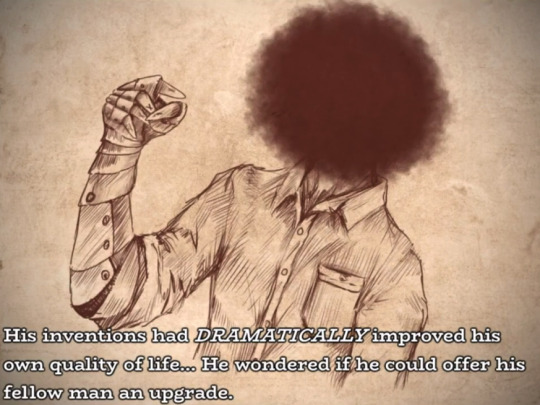
callum was obsessed with helping people, pushing himself to do more and more, because it was the only way he ever found respect. if he didn't help people and have grand visions for the world and make himself "useful" to society at large, then what would he be, if not a freak?
mingus and her paw-paw are very similar people, from their well-intentioned extremism, to their stubbornness and paranoia, to their inability to view themselves as anything more than a vessel for that grand cause they believe in (callum in the dialup, mingus in restoring her paw-paw's memory) - which is funny, because if mingus was able to view callum, and herself, as a flawed human person, she would come to understand how similar they really are.


:(
#babbles#dialtown#dialtown spoilers#mayor mingus#mayor mingus crown#callum crown#phonegingi#dialtown a phone dating sim#long posts#ableism tw#least surprising analysis post ever from the tttaac guy#started this. got embarrassed abt it. put it in my drafts. got really emotional about callum. returned to it. bon appetit
359 notes
·
View notes
Text
I can't take it anymore. The new Chainsaw Man chapters are so good I have to talk about them. Spoilers for chapters 176-178 below.
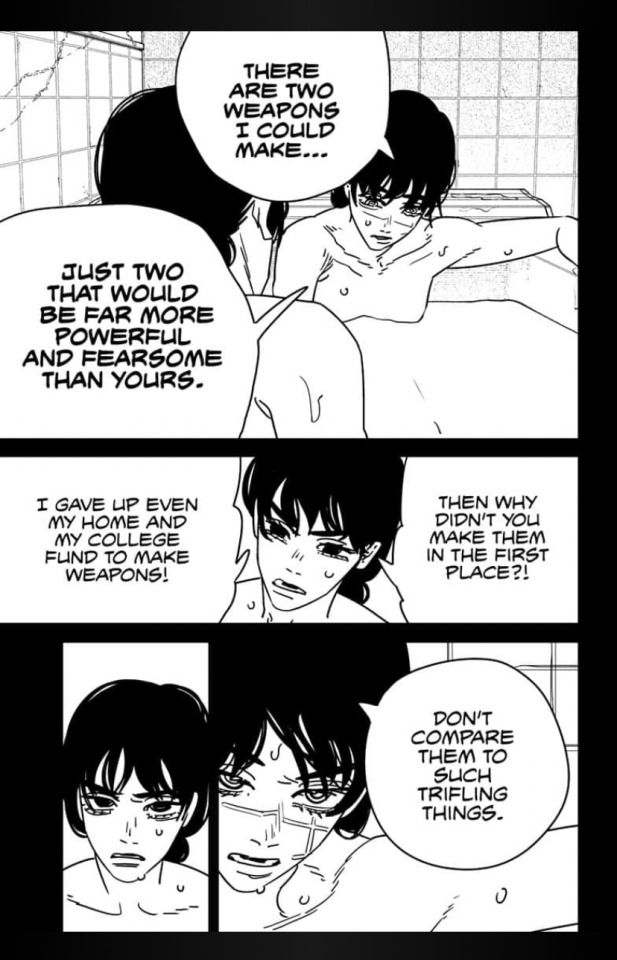
Love Yoru here. She undermines the sacrifices Asa has made and describes them as "trifling things" because in Yoru's eyes she has a much bigger goal. She constantly makes fun of Asa because Asa is a child and therefore values things much lesser than the dreams of the War Devil. It's so insane because right in the next panel,
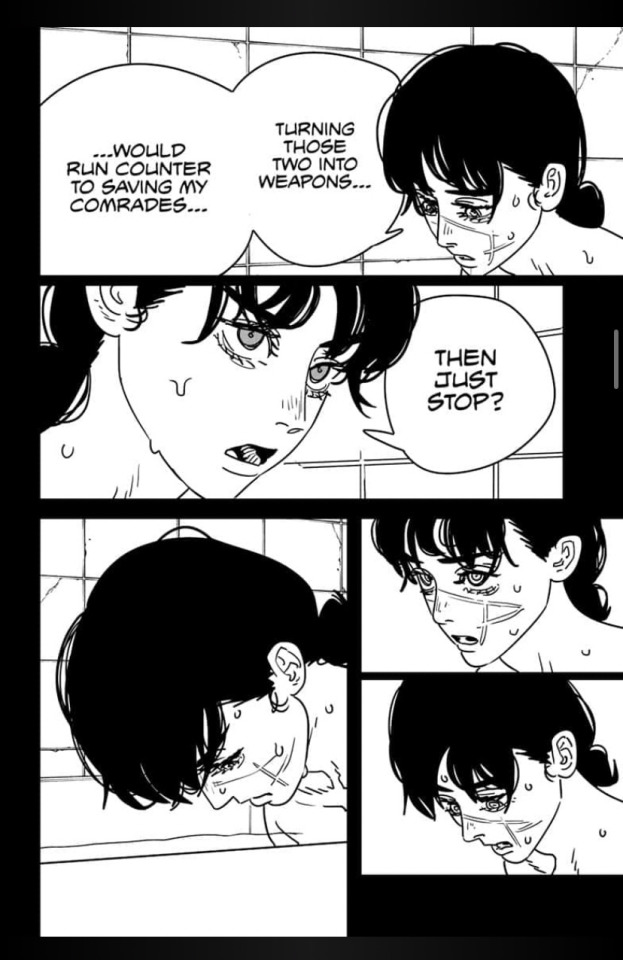
Asa acts like an adult! Would you sacrifice the things you have fought for the sake of your own gain? You say one thing but mean another. Asa is much like Yoru in this regard, she wishes to fulfill Denji's dreams (whatever they may be) and protect him. But in reality, she wants to do these things for the sake of proving she is a "good" person.
This connects back to the church briefly touched on in the previous chapters! What makes a good person? Action or intent? Many people go to church to follow tradition, and follow the values of this religious system because it will secure them in, what they believe to be, heaven. If one does good for the sake of personal gain, can we say that person is "good"?
Yoru and Asa both are willing to destroy what they had wanted to protect in order to gain this "goodness". Asa, without really understanding, is harming Denji while trying to do right by him. And Yoru, who is willing to kill her comrades for...
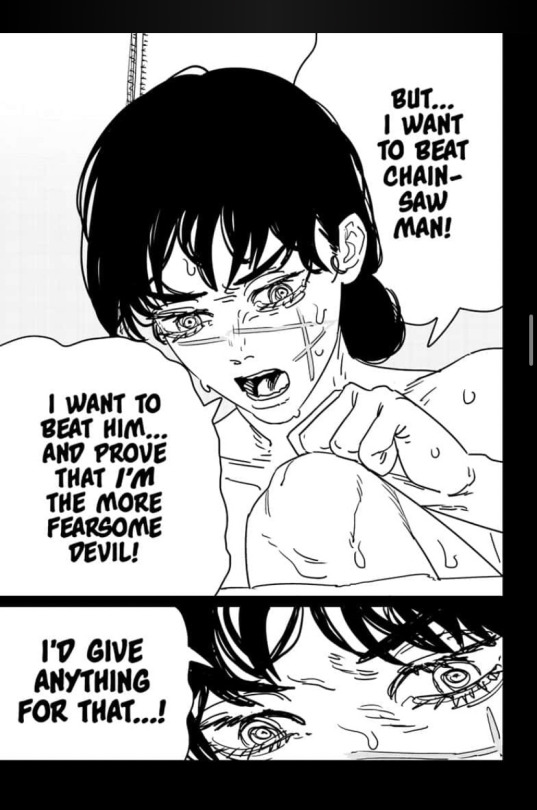
This! She is willing to give up everything for the sake of proving she is a "more fearsome devil"! She ridicules Asa for the "trifling things" she values, and yet she is sacrificing her own kin for the sake of the most petty bullshit dick measuring contest EVER. One that Chainsaw Man does not even care about. It's not a contest between two of the most "fearsome devils" it's a desperate devil attempting to find any means to remain relevant.
This is some teenager angst coming from a centuries old horseman of the apocalypse.
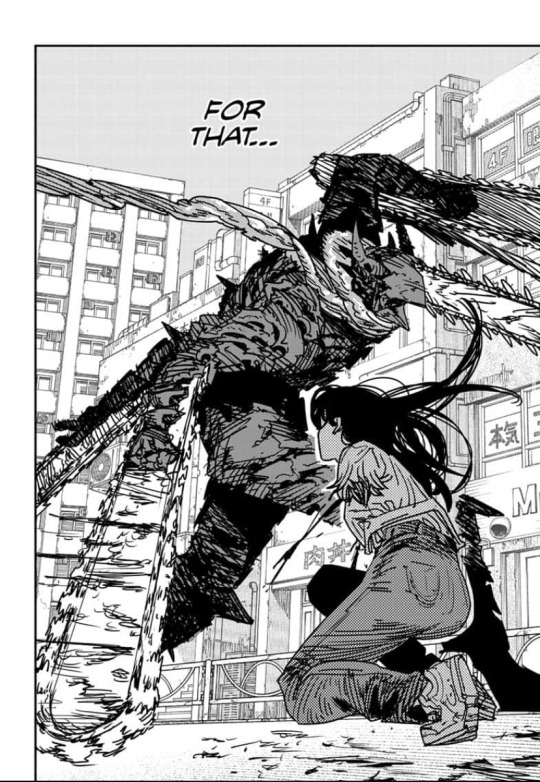
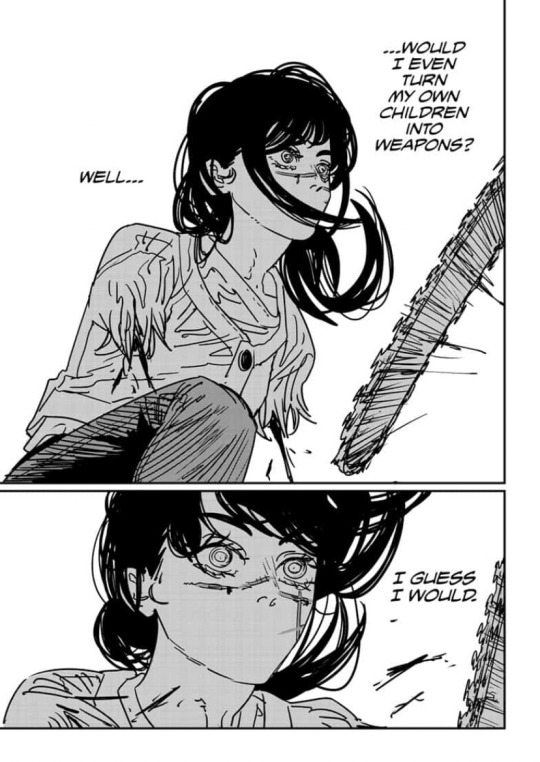
Armless, mouthless, and with zero agency she comes to realize her pettiness and chooses to steal the freedom of choice from her children. They must serve her as her mouth and her arms. Children then are:

Asa was saved by her mother from the Typhoon Devil. In reality, despite Asa's flaws she is a teenager. She wants go to college, have a home, have friends. Her story reflects Denji's. She wanted a normal life where she was loved and yet, her agency was taken by a devil much more powerful than her and now she must find meaning and power in a position stripped of those things.
In a way she is attempting to find a silver lining, "If I can protect Denji, that means I'm still a good person despite everything". Which is so tragic, because in more ways than one, she was never truly able to make a sound decision due to the lies she was told and the possession of her body.
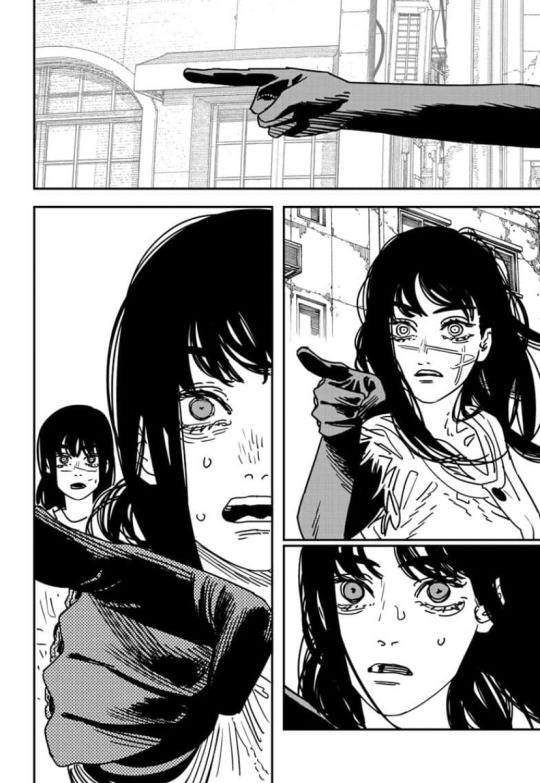
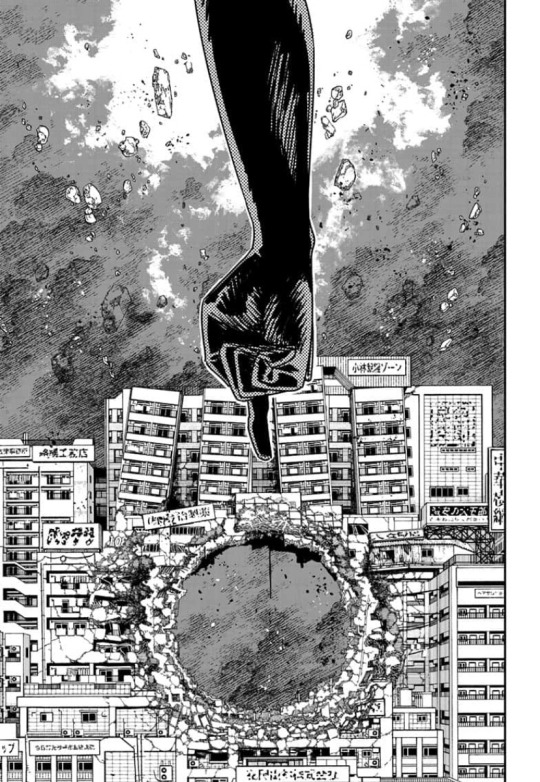
And come this horrifying sequence of events. Where Asa finds herself as the War Devil, hollowed out of her original heart. Her dream desecrated by war waged for the most petty bullshit dick measuring contest EVER. And isn't that all war? As the Statue of Liberty reveals itself to be a cocooning child of war. True freedom, in the hands of law makers and of devils, is defined by one's ability to wage war and decide who, in the end of mindless violence, is the true victor.
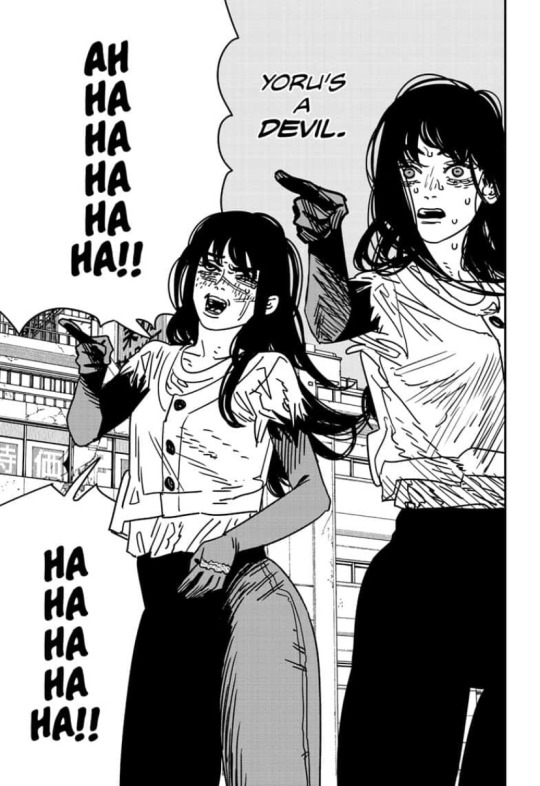
Individuals willing to kill children understood to be a parents' property, or a state's property, are devils through and through.
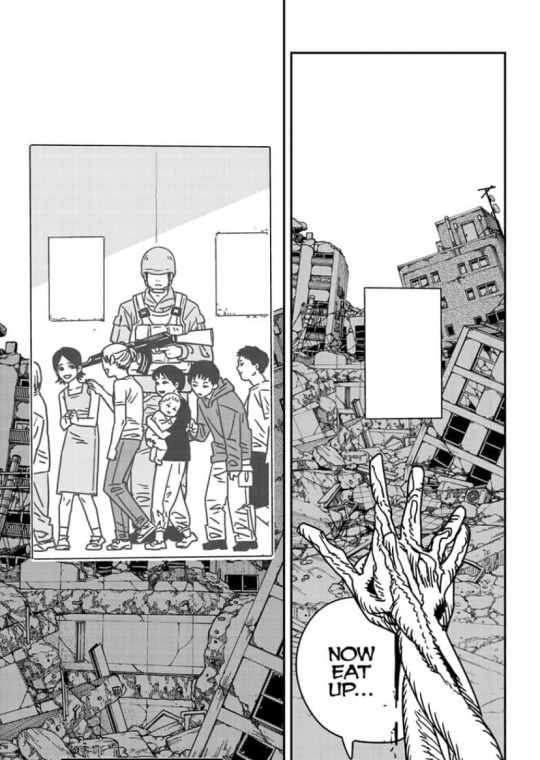
This is the fundamental horror of being a child, of being poor, of being irrelevant. This is the fate devils and humans similar to Yoru avoid by constantly participating in petty bullshit dick measuring contests.
Denji and Yoru are children who have been hollowed out so devils and humans can wage violent wars that destroy colleges, homes, and families with these children's bodies and hearts.
153 notes
·
View notes
Note
i have a question about hiveswap as im just getting into it, considering that the events of hiveswap and hauntswitch both take place in the late 1900s, whats the point exactly?
we already know whats going to happen and that all of the characters are doomed fail on their goals and then die no matter the outcome. the caste system is never abolished, HIC stays in power, both earth and Alterna get destroyed, and doc scratch continues his plan without a hitch
none of it seems to really matter or serve any purpose other than worldbuilding for 2 already doomed worlds (3 if you count the cherub portal implying a lost society of cherubs)
Well, it is. It is worldbuilding, that’s what precuels are. They add extra context to events you already know will happen, they add to how they happened, how we got there. That doesn’t make them pointless.
It may seem irrelevant at first glance, but Hiveswap actually has a very important role.
It sets the stage for the arrival of the players on both Alternia and Earth-A
The events of Hiveswap are happening with an equivalent distance in years between both Alternia and earth
Which means the Beta children are about to arrive in their meteors (1995 - 1996) a little after the time when Joey and Jude are having this adventure (1994), which means the Alpha trolls will get to Alternia soon too.
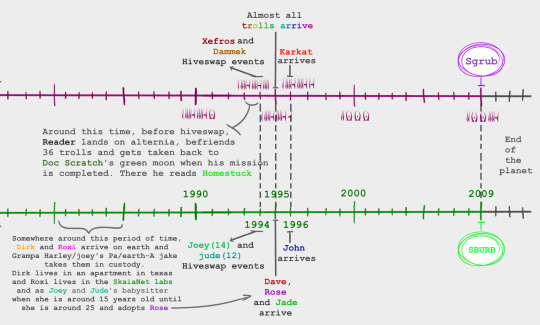
Both timelines are mirrored in time, they both have the same exact amount of time before the end.
We know the Beta kids hadn’t arrived yet to earth during Hiveswap because it’s 1994, and that the Alpha trolls hadn’t arrived either because Trizza is the heiress, and there can only be one at a time, so Feferi isn't there yet.
This series of events are necessary for Doc scratch’s plan, otherwise he wouldn’t have intervened, giving Xefros a surveillance free communication channel, so Joey and him aren’t detected by the authorities.
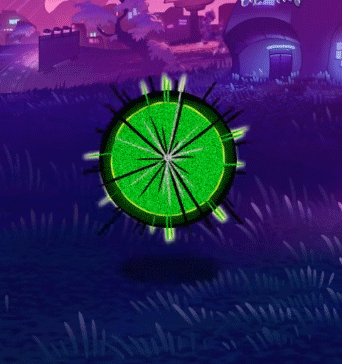
He needs them under the radar so they can (while trying to send Joey back home) connect people with each other, cause necessary problems, kick start important events.
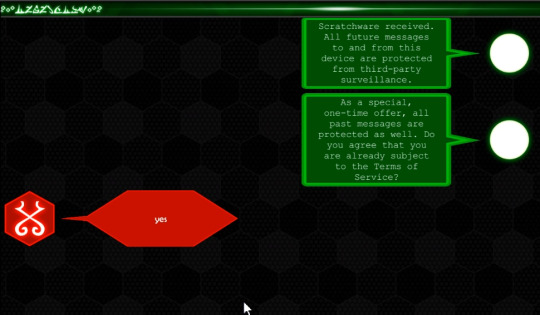
All which will set the stage for the 12 troll player’s arrival.
What do I think it’s the most important event Doc Scratch needs Joey and Xefros to make happen?
Trizza has to die. There can only be one heiress at a time, and if Feferi is about to arrive, then Trizza has to go.

The events of Hiveswap/HauntSwitch will cause the death of the heiress, either fighting against the Condesce, at the hands of the revolted trolls Joey and Xefros will influence, crushed to death by Feferi’s own meteor, who knows. But if this is the "equivalent to 1994 on Alternia" and all that is happening it’s really happening as a mirrored version of Earth’s timeline, then the 12 trolls should be to arriving at different dates during the following year. Which means she doesn’t have much time left, as we know Feferi was the only heiress on Alternia during Homestuck. And we’re 13 years away from the end of the world. It needs to happen now.
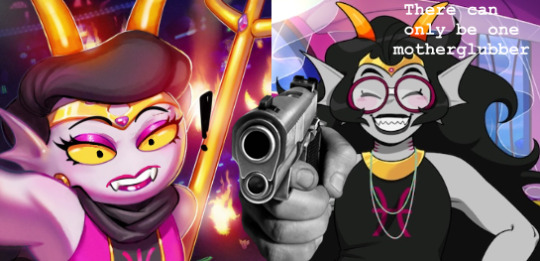
It's the same tactic Doc used with Rose, Vriska and Terezi
The only reason he ever “helps” anybody it's because he needs them to make things happen.
He needs Joey and Xefros alive, he needs the rebellion to go through (even if it fails, it'll fail in a way that it's usefull for him), he needs Trizza gone so Feferi can come to Alternia and so the final stage of this plan of millions of years connecting dots and manipulating people to create a hostile planet for the new players to grow stronger that their predecessors, can begin. The rise of the new players.
I personaly think Tyzias might be the one to intercept Karkat or at least be involved in it.
It could be her, Joey or maybe someone else, but whoever intercepts him will have to know about the signless and according to Tyzias’s password (69) she already knows about him and she knows his symbol, and seems to be a follower in the down low. Tyzias also must knows how the singless promised that there would be another troll like him, and according to Doc scratch's explanation:

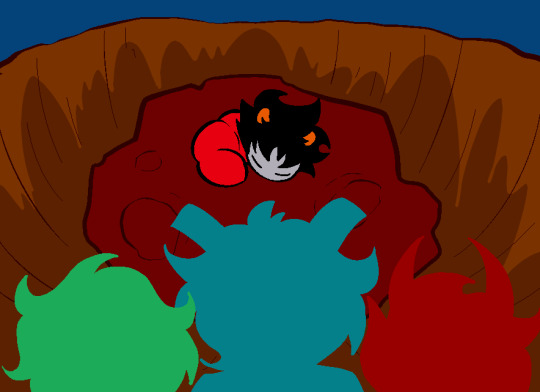

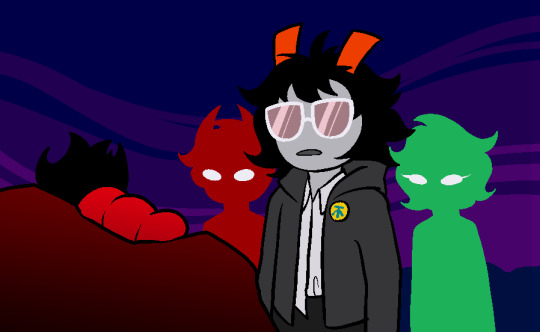

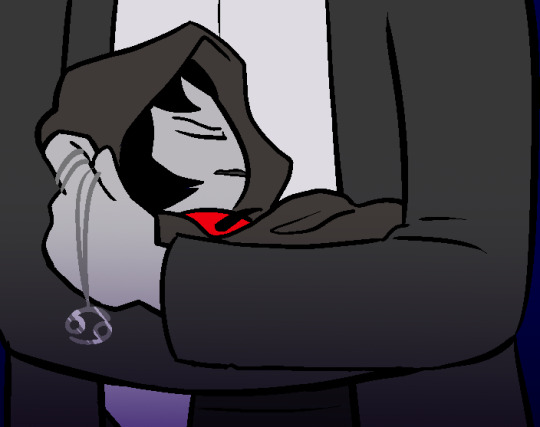
The followers of the summoner decreased enormously, but the Doc said himself that there were still some of them hidden and I think he was talking about Tyzias and her alies.
Sometimes we forget that there was intervention from the suferer's followers to ensure Karkat's survival
That’s why he has the sufferer’s symbol, someone who knew it gave it to him. And we know Tyzias knows.

The ectobiologist and team leader also seems to always be the last one to turn 13, (as well as the last to wake up as their dream self) so Karkat should be the last one to arrive, ending that chain of events.
Of course this all means that, by the time the end of the world happens, and asuming they’re all still alive, all Hiveswap trolls would be adults carrying duties off planet and would die the day of the apocalypse during the Vast Glub along with all troll Civilization.
The same would happen to Joey and Jude, assuming Joey is successful and returns to Earth. They would die on the 13th of April 2009 with the rest of humanity, not knowing they had a part in it or that their lost brother was the detonator of the end of the world.
It’s tragic in the end, but it’s necessary. Someone has to play that role.
They are the stagehands who prepared the stage for the first act of the play they were never meant to see.
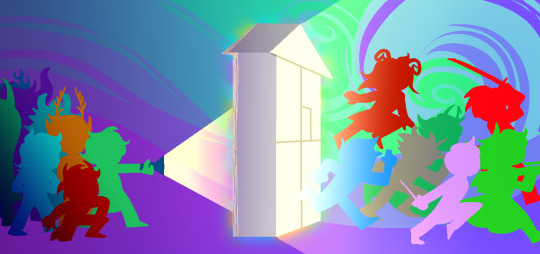
And who knows, it may not be the end of them, maybe we’re too quick to assume they didn’t get saved somehow. By some random paradoxical event or deus ex machine that teleported them away from danger. We’ll have to wait and see how it plays out.
It's been a while since i wrote an analysis, i really missed that ^u^
748 notes
·
View notes
Text
Caitlyn as a symptom of Piltover’s violence
No because i need to throw hands with both her haters and lovers.
Mass spoilers for Arcane, season 1 & 2, for every characters.
(post is like 2k words)
(small edit it's been five hours and you guys are so kind and positive?? i love you so much, the conversations are so fun! the reblogs i see u and ily, my ego is soaring! i got more arcane rants coming if u wanna tag along idk lmao)
(thanks a lot is all i mean to say)
Was what Caitlyn did in season 2 act 1 terrible? yes. Does that make her a terrible person? debatable. Is she the best girl ever and above any criticism? also no what the fuck.
What happens to Caitlyn, essentially, is that she loses her mother and burns for justice and vengeance, and is willing to do all she can to reach her goal. Which is not an uncommon arc in Arcane, to be willing to burn it all for your family and getting overwhelmed by anger and loss.
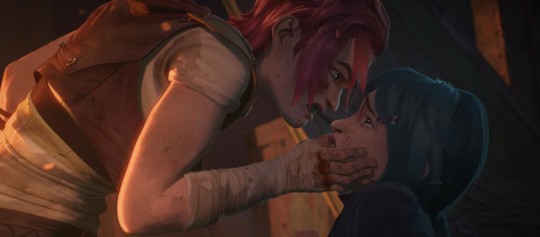
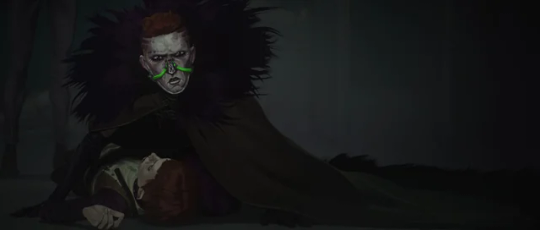
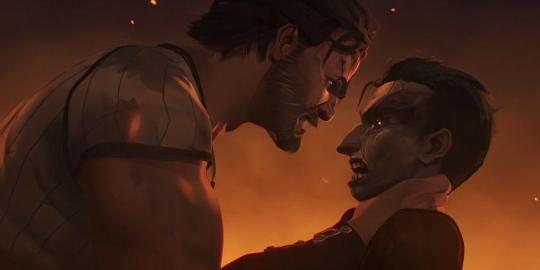
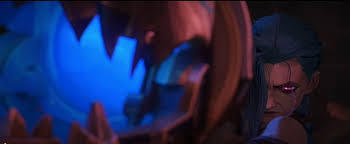
The main difference is the scale and power dynamics. Because the chembarons have their shimmer, Vi has her gauntlets, Powder and Jinx have bombs, Silco and Vander have allies but they quite match each other when it comes to power until the very end.
So why is Caitlyn’s case so apart from the others? Here’s the thesis: Caitlyn is a symptom and the harm she causes is a consequence of Piltover’s domination over Zaun. I will argue for it thank you.
The main characteristic of Caitlyn, in the context of Piltover leading a targeted assault on Zaun, is that she is the one with power. Caitlyn is, first and foremost, a Kiramman. The show’s explicit about the power of the name, because with the name comes respectability, status, wealth. The Kiramman family is a powerful one, that’s why Ambessa chooses her above Salo. Both Cait and Salo have enough hatred for the Undercity to follow her lead if she plays her cards right, but Caitlyn, even if not officially appointed, has the power to exist in the Council’s room. Salo is nothing beyond the Council — and while it gives him power, his own family or personal entreprises are irrelevant enough that we do not know of them — while Caitlyn is powerful even without the Council — she does bypass every standard enforcers recruitment procedures to get Vi in, and thus we are told that she is one of the most important if not the main funder of the enforcers. In a state holding its peace through sheer violence and constant repression (especially after Jinx’s rocket), if one private actor owns your police force, you are at that actor’s mercy (which, yes, does turn on Cait when Ambessa’s soldiers take over).
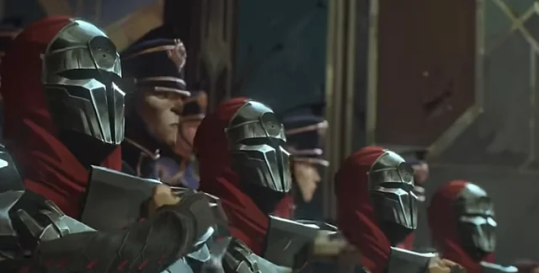
Most importantly for us, the Kiramman hold one monopoly of power over Zaun. A vital need of Zaun they are the only ones to answer. Yes, we’re talking about the vent system. Caitlyn, in her anger and in her determination to do whatever it takes to get to Jinx, is willing to use every power she has. That includes her rifle and her aim, when she takes the shot at Jinx despite Isha and Vi standing in between, but also the vent system.

And as we’ve said, Caitlyn is going through a fairly usual character arc in Arcane of becoming a monster for love, for family, only to be brought back by love and family (Vander i’m looking at you) (and then that culminated into nothing to serve Viktor’s character arc tihi) (i mean it when i say Caitlyn has an amazing arc). It just so happens that Caitlyn owns Zaunites’ right to breathe. Is it immoral to weaponize it? Absolutely, and we can deplore the lack of political repercussions on the Kiramman in the show but that’s a more general criticism: the audience and the Zaunites are expected to just forgive Piltover to ally against Noxus. We can have sincere grievances about that (i do, and a lot of caitlyn hate comes from there from what i’ve seen) but it’s not a Caitlyn exclusive problem.
The thing is, Caitlyn’s weaponizing of the vent system isn’t the root of Piltover’s oppression or of enforcers’ violence. It’s a symptom of this violence. Cait can weaponize the vents because she owns them, because Zaun’s clean air is her possession. Because Zaun’s vital needs are dependent on Piltover. Cait doesn’t even realize just how much she’s hurting Zaun. She knows she’s gassing them but, and to her credit, it’s a fairly targeted assault (what Cait is doing isn’t terrorism!) but she is a reminder that whatever little fresh air they have, it’s still a mercy from Piltover. Piltover engineers a problem and a solution and holds that solution above Zaun’s head to silence their protest. This is domination, this is the root of that vent system being oppression still: the Kiramman hold Zaun’s air hostage and it took two mourning girls for that hand to cut off the air flow.
Caitlyn makes herself an enforcer of that violence in her grief, and that’s the symptom of a deeply ingrained disease. The root of that disease is always, always the inequalities between Piltover and Zaun.
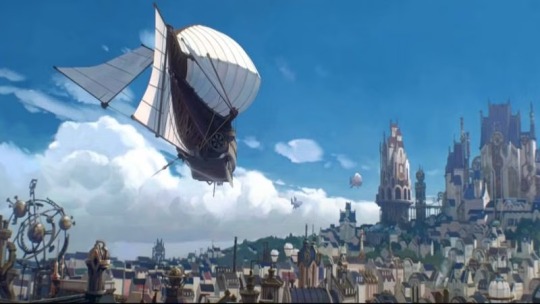
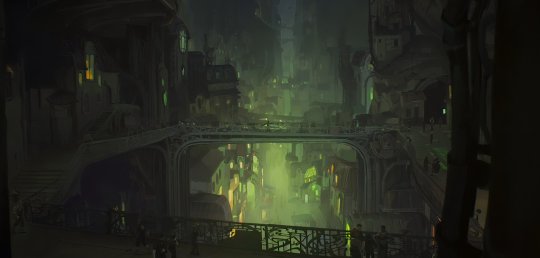
The violence is the symptom of a system that is critically failing, repression means your governing body is illegitimate, weaponizing clean air is oppression to its finest.
To argue this point a bit further, we’re gonna circle back to Silco and Vander and how their power dynamic influences their behaviors and how their power struggle drives the entire undercity.
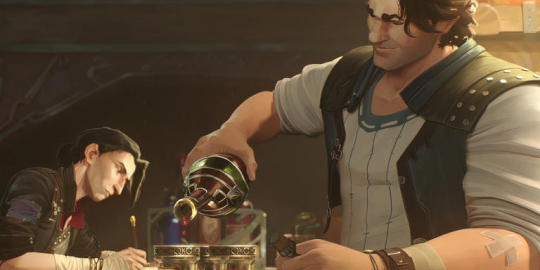
Vander and Silco both benefit from powerful allies. Vander has Grayson, Benzo and his position as bartender of the Last Drop makes him a valued member of the Undercity for Zaunites. Silco has Singed, Sevika and an entire network himself. They are two pillars of Zaun, creating a status quo that they work to maintain (at least their own position of domination) while furthering their own goals: Vander wants to raise his kids, Silco wants the independence of Zaun. Two vastly different sets of goals admittedly and that’s what leads them to reach out to vastly different individuals to help maintain it. Vander seeks out Grayson with whom he strikes a deal, while Silco allies with Singed for shimmer.
And when power suddenly shifts, when the right conditions appear, when the status quo is shaken, that’s when Silco asserts his power over Vander and his domination over the Undercity. Vander is put in a vulnerable position (his deal with Grayson isn’t enough anymore and he’s arrested) and Silco seizes the opportunity, deploys a power he has a monopoly over (shimmer). And after Silco wins against Vander, he can deploy his power over all of Zaun.
The status quo between Piltover and Zaun is constantly imbalanced. Piltover has already won at the beginning of the show and has been asserting, over and over again, through violence and in an abusive fashion, its domination on the Undercity. Caitlyn is like Silco in that comparison, she uses a power over which she has a monopoly (vent instead shimmer), in an unbalanced situation that puts her in the situation of the oppressor.
(And facing her, there is someone who is willing to turn that power against her. Just like Vander using Shimmer to protect his children, Sevika and Jinx using the vents for their own colorful clouds.)
Cait isn’t a poor innocent victim of circumstances but you have to acknowledge context and, in a show where parallels are so frequent, you can’t pretend she’s a completely unique character going through a completely unique arc completely unrelated to anyone else. If you hate her, hate a lot of other people too!
And, as is typical in Arcane, characters are monsters for love, and brought back by love.
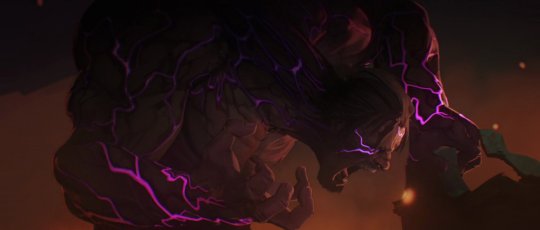
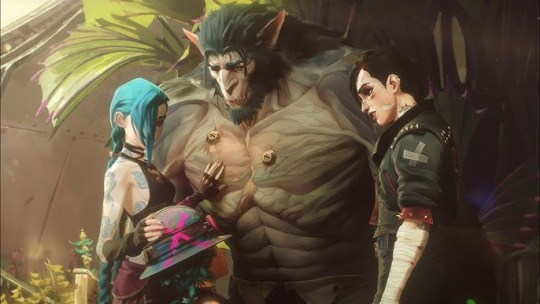
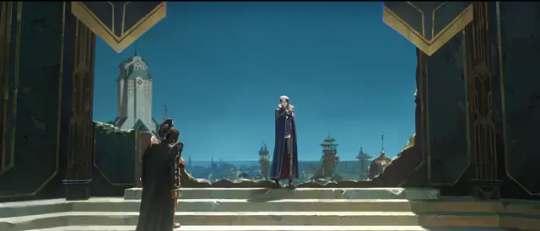
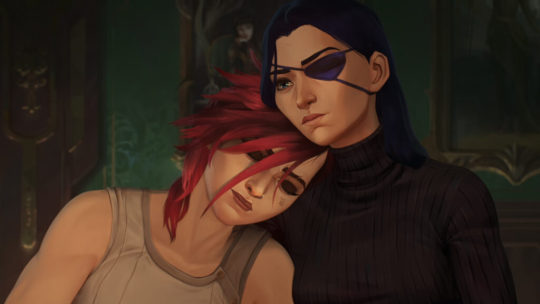
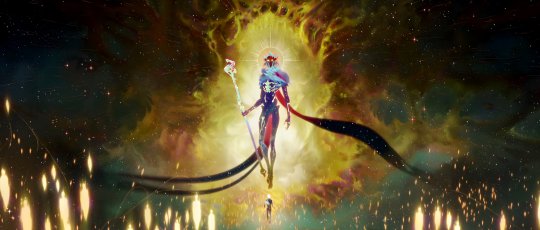
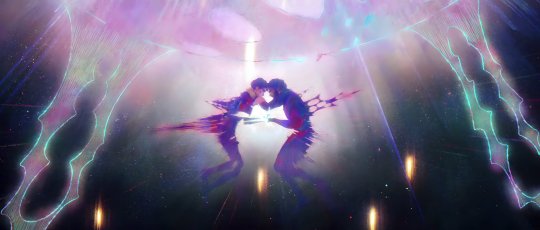
And Caitlyn’s arc shows that! Past arc 1, she was lost. Vi had left, Jayce was missing, her mother was still dead even if after all she did, her father was a shadow of himself, the only one she had was Ambessa who was fueling her vendetta to further her own colonialist agenda. Suddenly she was alone, serving as a puppet on top of a pile of gold and too much power she couldn’t control. She can’t call back the gas once it’s out after all, she can’t call back the martial law Ambessa installed now that the resentment is growing in Zaun and that Ambessa is the one holding the reins of enforcers.
That’s why her switching sides was so immediate: when Vi calls her cupcake, she brings the girl forth, before the monster. She gives her love and Cait latches onto it, and uses it to pull herself away from that trap she walked right in. “Why does anyone commit acts others deem unspeakable? For love” & “Is there anything as undoing as a daughter?”: love is forever the way in and out of hate.
I am very disappointed that we never got a proper conclusion to the tensions between Zaun and Piltover. I wish we had witnessed negotiations between Ekko/Sevika/Jinx/a representative of Zaun and the Council, I wish they had gotten control of the vent system, promises of fair trade, independence, something. I wish Caitlyn had been made to apologize and deliver herself the keys to the vent system to Zaunites. I wish for a lot of things about the political resolution in season 2 and the show did not go how i wanted it to. Does deviating from what I wanted inherently make the show bad? No, although I do think it wasn’t the greatest this time around.
I however can not talk shit about the character arcs. Not all are as well crafted as Caitlyn but i will take no more Caitlyn slander on the basis of “she’s a fascist!”. 1- that’s not what fascism is, although she did walk a line close by; 2- she’s a symptom of oppression, and by reproducing she makes herself an agent of it. She weaponises Zaun’s air because she can because she’s in power because she’s the heiress to the Kiramman. Doesn’t make what she’s doing less harmful, but it has to be treated in context. Caitlyn is still a twenty something grieving girl with her entire world shaken up, she just so happens to also be the heiress to an extremely wealthy and powerful family in an oppressive system and every path that opens to her, in the midst of her hatred, brings her to reproduce that domination in the most efficient way she has access to: the vents and the enforcers.
And, yes, by reproducing domination she is also an engineer of it. It’s important to acknowledge that what she's done is bad to put it simply, but do not denature her character to fit a conception of her that is easy to hate. I will put part of the blame on internalized misogyny too, as it pushes us to have less leniency and tolerance for women’s mistakes. No because I haven’t seen half that much hate towards Silco who, reminder, made the Undercity kneel by giving them severe shimmer addiction (engineering an issue and making himself the sole owner of the solution while maintaining it as a form of domination, everyone see where i’m going with this?).
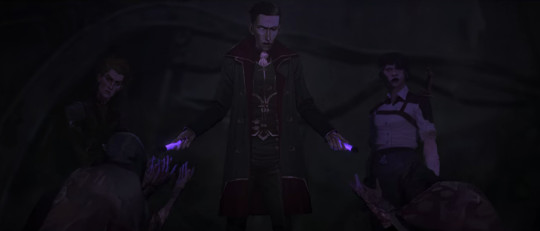
Again, do I wish we’d seen more of the political consequences on Caitlyn of that? Yep, absolutely. But I will not blindly hate on her while ignoring the global context of her actions and I invite you to do the same.
Tell me, do you hate Jinx for her so-called terrorist acts or do you see them as part of resistance against Piltover? You can not see the context when you like it only i’m afraid, and, in an unprecedented show of nuance for the internet, we can understand context and acknowledge moral complexity and still hate someone.
Hate Caitlyn if you want, but do it in a constructed way so we can argue together please! I need to talk about this show so badly, please hate the enforcers and the change in Cait’s character but do so in a well-argued fashion, i beg of you.
#arcane#arcane spoilers#caitlyn#caitlyn kiramman#caitlyn arcane#arcane analysis#do note that there probably are political consequences to Cait’s actions happening off screen post canon#because it’s not shoved under our nose doesn’t mean they don’t exist#but we can be disapppinted we didn’t get to see them#“I wish we had more complex female characters” but you can’t handle Caitlyn Kiramman#anyway capitalism is the root of evil and power inequality engineers predatory behaviors#arcane season 2
73 notes
·
View notes
Text
Its so neat that To be hero x is here now ive been waiting since the first trailer and the story is genuinely so interesting
Obviously waiting for X, Captured my heart from the very beggining
I might make my little episode yaps every sunday
Ep 1-3 Yaps under the cut!
Episode 1:
OPENING SONG IS SUCH A BANGER! It does remind me a little bit of Solo Leveling’s opening but thats irrelevant here
it was a lot more than I expected, the sudden death from OG Nice Im not gonna lie made me giggle cause I though that he was expecting Lin Ling to stop/grab him and obviously he died
Im also wondering why THAT specific place to choose and die? What could have made him want to do it there when he saw that Lin Ling was there
Episode 2:
Genuinely in love with how they portray moon as her own character or at least wanting to be her own character away from Nice
Most often than not secondary female characters get forced into the romantic subplot rather than letting them be their own character!
Obviously the Wreck and Nice plotline is a little tragic that I wish they would have divulged more so we have a better understanding on who former Nice was
overall a good ep and honestly a little shocking because of how they touched on the topics that usually follows the status quo
We kind of get a lot more information how capitalistic the nature is of the hero org, a theory of mine is that X is his own thing and is not signed to a Superhero org at all I mean he could be considering he has that drink branded after him? I guess we’ll figure out in october!
Episode 3:
I enjoyed this episode because I misunderstood how the world works from ep 1
I thought that you would have to have multiple have faith in you, to have supporters behind you in order to obtain the powers but not at all, The nature of this world is that if multiple people believe you are one thing, then you become that thing
I watched this episode with my friend and he pointed out how sad thst shit could be, like imagine being a kidergsrtener and a bunch of your classmates believe you are a poopy head, what will that do to you yknow? <Its a childish comparison but it still lets you see the bigger picture>
it also tells us a lot about how one sided Views can affect people, Stand Man couldnt sit down at all because people believed that he stood for justice, that he always will and that perspective affected his personal life as well
I think in a way, this may be affecting Lin Ling because he took on this Nice persona, he’s completely forgotten abt his former life and his personality has changed completely
He has OCD as mentioned from the last few moments between his conversation with Stand Man and I think this might be from how the people see Nice as this perfect non lying hero, the most upfront to his fans and the like
aside from that we got to take a greater peek into the capitalistic nature of this world! Popularity is everything and its important that we make it to the top ten!
genuinely curious abt X even more We’ll see!
#HideHeroYaps#to be hero x#HideHeroSundayYaps#lin ling#to be hero x nice#tbhx nice#tbhx spoilers#tbhx wreck#tbhx lin ling#tbhx x
37 notes
·
View notes
Text
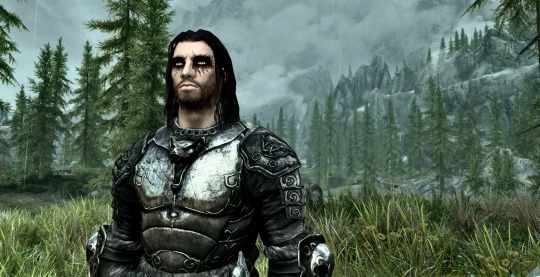
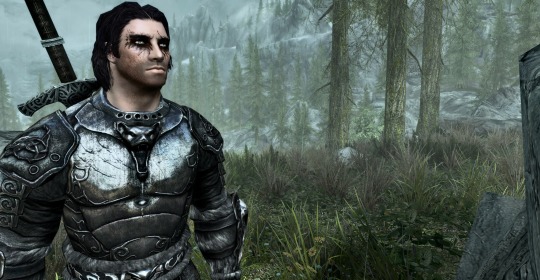
blah blah werewolf husbands blah blah blah
so, i just wanna talk about my personal characterizations of them. farkas is not some stupid bumbling brute with no brain and no feelings, and vilkas isn't just some angry angsty asshole (although at a surface level, i can see this). and this definitely heads into headcanon/fanfic territory.
farkas has the unique role of being the only companion we can actually witness transform into a werewolf (we do get to see aela in wolf form, but not her actual transformation and with no combat). and kodlak has convinced vilkas that sovngarde is a desirable goal incompatible with lycanthropy. so what does this mean?
clearly, farkas is more at ease with his own lycanthropy – his own self. he can transform into a wolf at will, he has amazing control over it. he is always calm and level-headed, he isn't concerned about any sort of bloodlust or rampages. i think this is due to his upbringing, surrounded by werewolves and warriors his entire life. this is his normal, his peace. i still believe his wolfblood burns hot within him, and he has moments where he loses control. but these moments are few and far between. his outer shell is a quiet calm man, who has moments of boisterousness and passion. and he is perceived as man of few words, or more negatively, a bad conversationalist. i think this contributes to the idea that he is stupid, but he isn't. he definitely doesn't have as much capacity to remember many historical facts like vilkas, but still he isn't stupid.
farkas has a rich inner dialogue and feels his emotions very deeply. yes, he has his personal trauma and other things he has dealt with which have possibly caused him to become withdrawn. but he has a very healthy outlet in hunting and fighting and training, especially considering he is literally not a human and biologically has a need to hunt (whether this aligns with human needs or morals is irrelevant).
and you'd think the same would apply to vilkas, but it doesn't. he is always grumpy at best, a whirling storm of fury at worst. he has bursts of anger, shouting, maybe even violence. combat is his main outlet, at jorrvaskr he can knock skulls together all day. but put him in a tavern and he will sulk in the corner all night. to most everyone else, he's moody, brooding, irritable, snobby, fun-intolerant, and has no problem laughing in your face when you ask a stupid question (although he'll tell you the answer anyway, because he certainly knows it). but there is an ache, deep in his heart. he has carried it with him for a very long time.
i believe in childhood vilkas was perhaps closer emotionally to their father, jergen, or had a stronger attachment to him. and when jergen left for war, vilkas took this much harder. he had to reason with himself and come up with some way for this loss and grief to make sense. so vilkas perceives this as abandonment, and maybe it was. and due to his environment and the people around him, the only thing this boy could understand was anger. then he latched onto another father figure, kodlak.
and we have to remember that kodlak wasn't always an old man. he was young, a powerful werewolf warrior who claimed many victories and looked glorious doing it. he still maintains a connection to talos in his old age, which he likely acquired in youth long before he became a werewolf. after jergen left and never returned, kodlak took on the responsibilities of instilling good values into those boys. i don't believe kodlak really taught them much about talos (somewhat secular upbringing). but he did teach them about honor, integrity, leadership, and security. over time, kodlak came to see them as his own sons. i think this is where kodlak's worries regarding sovngarde stem from; things are different now that he has children.
and when kodlak became disillusioned with lycanthropy, he projects onto vilkas and farkas, saying that they do not take to the blood as deeply. vilkas was easily convinced. farkas obviously just agrees with vilkas, he goes where his brother goes. but i think internally, farkas is extremely comfortable as a werewolf and would not choose to rid himself of his power. so when kodlak says farkas seems to be fine after swearing off transformations... well, i think it is because farkas would never give this up, and hasn't.
i think farkas' mental peace and clarity come from being his unrestrained self. he doesn't hold back his wolf, he embraces it fully. he regularly hunts in beast form, like aela and skjor. he transforms whenever he needs to, a powerful release of emotions and other energies. maybe farkas just wasn't as close to jergen, maybe he just has better emotional control and was able to efficiently cope with his grief. no matter the reason, he isn't as affected by this loss as his brother. (not to say farkas was entirely unaffected, but everyone has their own reaction to loss). however, farkas did very much look up to skjor. and when skjor dies, farkas is grieving. he expresses this verbally once and then never again. he's a man of few words, he contains his grief and other emotions.
vilkas' enduring anger, however, is worsened by holding himself back. he is convinced lycanthropy is a curse, that he isn't a true nord. so he doesn't transform into a wolf. he remains a man, every day, possibly for years. he is bottled up, repressed, waiting to be released but he will not allow this to happen. this is the illusion of self control. in holding himself back, he makes it so much harder to contain. he is absolutely itching with rage and he knows why but he is so stubborn. he has made up his mind; he will not transform. to him, this is strength. he believes his beastblood is his weakness. but i don't think werewolves should see their blood as a curse or a blessing. it is simply who they are, and it's important emotionally and mentally and physically to embrace who you are.
so basically, when farkas transforms into a wolf, he is completely in control and fully aware. this is what vilkas thinks he is, but in holding himself back he is actually on a path to losing control over his beastblood.
i love them <3
#x#so basically im crazy ❤️#also in these screenies i removed their dirt#clean wolves <3#and also i say this is fanfic territory bc this is how i write them in my fic#and i just wanna say i've been in love with them since i was literally 12#txt#farkas#vilkas#werewolves#werewolf#the companions#the circle#skyrim#skyrim screenshots#skyrim screencaps#tesv#skyrim scenery#tes v skyrim#tesv screenshot
39 notes
·
View notes
Note
WIBTA if I officially reported a coworker for indirectly interacting with me?
♊️ to recognize.
My coworker Frieda and I used to be friends but we didn't mesh together and we had the ugliest friend break up ever. What happened between us irrelevant to this AITA but both of us were assholes to each other but the people following our situation closely are telling me she's much worse, and I think so too. Some people even told me I'm NTA but could've handled it better.
We agreed to stop talking to each other and she was the one who's most vocal about not wanting to interact with me, but, she continued to harass me every once in a while, literally taking away the tools from me by force while I'm still using them (we are supposed to use them in turns), getting in my personal space for no reason to the point of 'accidentally' brushing her arm against mine, and literally trying to make me late to go home.
That last bit was was my last straw and I unofficially reported her to the manager, she got a stern warning to stay away from me but she wasn't punished. The manager told me stay away from her as well and (unofficially) report her again if she attempts anything.
Now, my Ex friend doesn't do anything terrible to me, except she keeps keeps commenting to other coworkers on the things I say. She doesn't say bad things, but she has no right to include herself in my conversations.
Example:
A coworker I'm friendly with mentioned her upcoming birthday, I was busy with work so I didn't say anything, but everyone else wished her a happy birthday.
She turned to me, since I was the only one who hadn't wished her a happy birthday yet and was like "hey OP, my birthday is next Thursday!"
I said "oh alright I'm bringing a gift for you."
She said anything, then Frieda freaking turns to her and says "yep, gifts are the most important!"
Dude. Like she didn't even bring it up because she was considering asking the coworker about what kind of gift she wants or anything, she just said it because I did.
Like, if it was just a one time thing I wouldn't care, but she's doing this often, like it feels she's purposely trying to talk to me in a roundabout way. It happening almost in daily basis.
Another example if you don't believe me, everyone was talking about coffee. Like a whole conversation about it. When one coworker commented he doesn't like coffee, I asked him if he likes tea and he said yes, then she chimes in and asks him how he likes his tea? Girl ya'll are talking about coffee leave me alone. Stop including yourself in my conversations.
One of the reasons I'm upset about this is that Frieda is a social butterfly while I'm socially awkward. I'm having a hard time interacting with coworkers as is, it feels as if she's constantly stealing the attention away from me and silencing me. I know she won't like it if I do the same thing to her and won't try, and I always butt out whenever she's talking to other coworkers. It's hard talking to the coworker that's sitting next to me if she's literally coming from across the room to talk to them, which is not wrong in itself nor do I think she's purposely doing it with the intention to steal them away from me, but it makes me struggling to talk to everyone else. But her literally butting in my conversation is the thing I'm actually upset about and what I plan to report her for.
Now, I know my manager told me to tell her if Frieda bothers me again, however, I don't want to do that. I know my manager is trying to be fair but she friendly with Frieda and won't actually punish her because it's unofficial and she'll just talk to her about it, it won't be satisfying to me which is why I'm thinking of directly going to HR and reporting.
By the way, HR doesn't have the power to fire her easily so it's not like I'm putting her in actual immediate risk, but an official complaint about her will be stuck in her profile and as per the law, once she get 3 official warnings she can be fired. I'm not exactly sure, but I think another coworker has reported her already for making a joke in poor taste so this will most likely be the second warning. She often gets in fights with people so I do think it's only a matter of time of it happening. I never get in fights myself but man does she really push people's buttons. In the span of 1 year at work she has already fought with 7 coworkers already (the one I know about anyway, could be more since I have no idea what she up to these days)
I feel I might be TA because I might be overreacting, as she's just talking to other people but I still want to report her. I'm making documentation already but debating whether I should do it or not. WIBTA if I report her?
What are these acronyms?
175 notes
·
View notes
Text
They're absolutely right...

...It's the writers that deserve the lion's share of the backlash, for poor, innocent, boring-as-hell Zoe is merely a tool of the oppressor, aka Mr Astruc. What's being oppressed, you may well ask? Well, interesting storylines, proper continuity, two-dimensional personalities... I could go on. Everything that makes a show compulsive and rewarding viewing that Miraculous Ladybug conspicuously and utterly lacks in every department due to his increasingly destructive machinations, basically.
This pink-streaked plot device masquerading as a serious character can (along with another equally pointless individual called 'Soquerline' who was so unmemorable I almost forgot she was ever a thing) exists for one reason and one reason only: to diminish Chloe's relevance and role in the show to the sum of precisely nothing. Well after S5, job done I guess guys. Well done. Well done indeed. (Although apparently not... they're bringing Miss Bourgeois back for more torture in the London 'special'. Guess Tommy Boy just can't keep away from his favorite punching bag, can he?)
The irony is though, having such a super-sweet but dull-as-ditchwater Mary Sue to replace a well-established and multi-layered person such as Chloe actually sends out a seriously awful message. Why? Because if I was a bad kid and saw S1-3 Chloe, I'd think 'what a fascinating redemption arc, I can inspired by that and do better.' But after seeing S4-5 Chloe and what an arguable downgrade as a replacement the incredibly tedious Zoe is, I'd be more like 'well, obviously there's no point in trying to be good, because you'll probably turn into a psychopath overnight with no explanation in the middle of your genuine efforts to improve. And if what the show is presenting to me as the ideal for a teenage girl to be is the waste-of-blank-space that Zoe clearly is... then a life of deliquency sounds more tempting with every passing minute! Now, where did I put my spray can?'
The most shameless aspect to this whole argument though, is by those trying to paint the hapless Zoe as some kind of lesbian icon. Pardon? She got a plot-mandated crush on Marinette in one episode and somehow that makes her insipid and needless presence an asset for the gay community? Somehow a few people have got it into their heads if you 'dare' to make someone non-straight in cartoons these days you deserve a big pat on the back for that 'risk' alone. WRONG. They should also be fleshed-out, complex, necessary characters whose sexuality isn't just define them or deflect from deserved criticism as to what the hell they are doing there if they turn up in the middle of proceedings with no prior explanation. See: The Owl House for how it's done.
And that's all Zoe being gay is... an irrelevant trait Mr Astruc can point to cynically and say ' you're a bigot for disliking her whatever your reasons are, so I'm not listening to you' instead of engaging with the actual argument which is SHE IS NOT AND WAS NEVER NEEDED IN THE SHOW. Everything you required to make Chloe the brilliant character she could've been was RIGHT THERE in the script but you CHOSE to rub it all out and scrawl some hastily scribbled doodle with no personality other than being 'very nice' in her place. A tragedy. The worst case of self-vandalism I've ever seen. No wonder Jeremy Zag wants to start from scratch with his rebooted movies. More power to him, IMHO.
Needless to say, nearly all the above in the quoted post about her father loving her (we haven't met him yet, it's DEFINITELY not Andre Bourgeois, his name ends in 'Lee' for a start) her supposed growth (the only 'growth' she's had is when she turned into that giant golden Chloe after being akumatized) her alleged pansexuality (all in the desperate mind of the OP) her 'abusive' family (I think you'll find Chloe had it FAR WORSE over the course of the show in that regard, so why not idolise her?) is complete bunkum. and to be frank I couldn't compose a much delusional post if I tried. Sometimes I wonder: what planet are some people on to reach such implausible conclusions? I don't understand it, I'll never understand it and quite frankly I feel quite sorry for the arbiters of such risibly deluded takes.
Last but not least though, we have...

Now this I ALSO agree with 1000%. And I know just the place to 'flush' her... ;)
#The gay community deserves better representation#SAY IT LOUD AND SAY IT PROUD#miraculous ladybug#miraculous#ladybug#chloe bourgeois#ml salt#zag#ml#disney#zoe lee#queen bee
87 notes
·
View notes
Note
I find it amusing how some anonymous users call you a hater and a child throwing a tantrum (as if sending hateful messages wasn't). How can they be so blind to this?
The DLC writing is dogshit at best, and I am being generous. FromSoftware not only butchered Miquella's character but other things too. What happened to him wanting to cure his and Malenia's curse? There's no mention of that. The Haligtree—supposedly a home for the shunned and mistreated? Nothing. Granting Godwyn a true death? Nada. The Eclipse? Pfff. The Outer gods and the unalloyed gold? What about him being Torrent's former master? (As the promotional art implied) And the steed choosing the Tarnished? If I recall correctly, wasn't Torrent meant to pick lords? So this means Miquella trusted Torrent enough to let it choose him a consort, yet our role there is practically non-existent. Besides that, as far as I'm concerned, for one to become a god, one must be in contact with the Elden Ring, such as Ranni did, yet we don't see that in the DLC. And the thing that bugs me the most is Miquella abandoning parts of himself, like his love. Like, yeah, "Age of Compassion," but there's something you need for that and it is, y'know, love??? Where's the sense in that? Wasn't the whole point of him become a god and fix Marika's mess in the Lands Between? Not following her steps.
I'm not even going to mention Radahn because his presence here is as irrelevant as in the game.
THANK YOU ANON! Finally someone with sense! People who are saying "Oh you are just angry because the DLC doesnt confirm your headacanon or expectation." The expectation exist because of hints and lore that already exist in the base game, of course you will want to see the big pay off in Shadow. Imagine if you are Dr. Who fan and seeing 13th Doctor turned into a weeping angel but then in the next episode it doesn't go anywhere and she's immediately fine again
I will list others things that aggravate me about SOTE
The battle between Malenia and Radahn: In the base game, their battle is implied to be over runes, and because he was halting the stars and thus Miquella's fate. Malenia invaded Caelid to get Radahn's rune and solving the halted fate business, while general boi also wanting to accumulate more power so he can be Elden Lord with taking hers. Simple but effective.
But now its over a marriage with Miquella?
While it made sense for him to ally with the Haligtree so Radahn can get into the fast track of becoming Elden Lord through marrying Miquella, there's 0 build up anywhere in the base that will led us to believe Radahn even got to do anything with Miquella.
Also while he is a warmonger and certainly not a good person (I dont care what chuds on reddit said, just because a guy likes his horse that doesnt make him nice, I don't even hate Radahn or anything) he genuinely cares about HIS OWN HOLDING.
Now from what I gather from the DLC, he will agree to become Miquella's consort if he got an epic battle first. So now the motivation for Malenia vs Radahn iconic battle is... It was a deadly sparring ritual before the groom settle down? Radahn can you at least do it in a neutral zone so this battle wont destroy your OWN LAND?! There's no way Radahn didn't know that sparring with Malenia could endanger Caelid, especially with the fact that she has ROT. Radahn might be a brute archetype but he's not stupid, yet this DLC made him looks like an absolute oaf who doesn't care about whatever Caelid will survive or not...
2. Mohg: I always thought he will return, he gives me the vibe of a villain who say "I'll be back!" and I thought there's no way the Formless Mother will allow her champion to die just like that. Yeah he's back but in the worst way possible that will make his fans despairing and his haters say "I hate Mohg but he didn't deserve this."
His arc in the base is good, it is conclusive and it made sense.
A guy who was born hated, abused, and shunned by his own mother decided to say FUCK IT and created his own order, cavorting with an Outer God, committed heresy left and right, then kidnapped his half brother so he can force/convince/manipulate/doing blood ritual whatever so Miquella will make him a consort. Then the Tarnished ruined his plan, killed him. It was a well-rounded arc. Its good enough. I always admired his tenacity to give a middle finger to his family. But now? This weird over engineered brainwashing-kidnapping thing undermined the authority of both Mohg and the Formless Mother. Did she even care about Mohg? Why the Formless Mother didn't try to stop Miquella or at least warned Mohg about it?
And what the fuck Mohg is actually doing down there? What was his plan to elevate his order and replace Marika's? How he will do it if he never wanted to become Miquella's consort? With his drip alone? Maybe there are things that I missed about Mohg's plan in the DLC?? But this DLC narrative now undermined his arc and the Formless Mother.
3. Mesmer: While he is still intriguing and judging from youtube (No i havent reach him personally, because you know I'm busy but I spoiled myself, I always do for something as big as BG3 or Souls) I thought he would play a bigger role in Shadow, but not really? He's kinda overshadowed by Radahn who is not supposed to be there
Also Rellana's existence sounds like a sitcom level plot twist? Its kinda funny LMAO "Oh you think Renalla's boss fight sucks and you think she is weak? HERE WE HAVE HER TWIN SISTER RELLANA! ITS THE UPGRADED VERSION OF CARIA 1.0!" (I do like the expansion and exploration of the Carian's family tho)
4. "What about him being Torrent's former master? (As the promotional art implied) And the steed choosing the Tarnished? If I recall correctly, wasn't Torrent meant to pick lords? So this means Miquella trusted Torrent enough to let it choose him a consort, yet our role there is practically non-existent." : THIS YOU ARE SO RIGHT ANON, Torrent chose the Tarnished and Miquella asked Ranni to give the spirit calling bell to whoever Torrent chose. THAT'S MEAN THE TARNISHED ALREADY HAS A CONNECTION WITH MIQUELLA, I'm willing to bet over my right arm, this Promised Lord that Miquella/Malenia mentioned is either supposed to be Godwyn or THE TARNISHED THEMSELVES!
Look Miquella need a lord strong enough to back his claim and help him to change the world right? Why insisting on chasing after Radahn (that never mentioned to have any connection or alliance with Miquella) WHEN YOU CAN HAVE THE GUY WHO DEFEATED RADAHN AND MALENIA THEMSELVES! The Tarnished is already strong enough to challenge MOTHER FUCKING GODFREY and won! It make 0 sense for us not able to become his consort. What do you mean you can make the dream of a guy who is literally called THE DUNG EATER came true and subjugated everyone into a world of pain because shit eater is an edgelord who thinks omens and their suffering are totally cool, but not MIQUELLA'S? Its so bullshit. In the grand scheme of things, Dung Eater is as relevant as a random Tibia Mariner.
I'm still hoping we can see Miquella's ending, I hope its gonna be added. I saw someone mentioned that there's actually Miquella's ending but not implemented? I hope it can be added and at least some aspect of the missing story/plothole fixed, because Elden Ring 1.0 was quite different than what we have now...

This guy on reddit also echoed my statement

5. Godwyn: I don't care what some people said "Oh Godwyn is not supposed to be there, its just your headcanon." Brother... This DLC is about Miquella and Mesmer (even though sadly Mesmer's role seems to be diminished :/) there's should be any mention about Godwyn because Miquella and Malenia loves him very much.
There's a statue of them hugging each other, and if I'm not mistaken there were people who data mined and found tidbits about Miquella trying to resurrect him and there's stuff about Miquella giving up his throne
Show us Miquella failed to resurrect Godwyn, show dont tell! (so it wont impact Fia's ending) or please give us a mentions about him by Miquella, or knights who used to serve pre-dead and rotting Godwyn appearing in Lands of Shadow, something, anything! its like his own family, doesn't give a fuck to solve the problem that his rotting body caused.
6. The gloam eyed queen and Melina: I thought GEQ will be mentioned, since this DLC also delved into Marika's past, I mean GEQ was her rival and she's nearly becoming THE God instead of Marika. But eh nothing about her or Melina :/ Tho I do like tidbits about Marika's past and her village
There's other things... But eh I'm tired of typing lol. I do enjoy Elden Ring, I really do, and I had such a high expectation for SOTE :/ so yeah I became loud about my disappointment because I'm invested
#elden ring#sote spoilers#shadow of the erdtree#elden ring spoilers#queen marika#starscourge radahn#malenia blade of miquella#godwyn the golden#mohg lord of blood#miquella the unalloyed#mesmer the impaler
96 notes
·
View notes
Note
Sorry Interface – I saw that long CK confession and clearly, I have too much time on my hands because it annoyed me enough that I have to submit a rebuttal. So here is a point-by-point counter argument because I am tired of you CK defenders *not getting the point*.
“He’s a trickster”
Just because someone is a trickster figure does not mean they are exempt from being an ass. That’s just making excuses.
“He’s all about equality. Punishment fitting the crime.”
Okay yes, the CK trapping Edwin in Port Townsend *is* a fitting punishment for trapping a cat. This is true. However, the CK’s first offer to get the bracelet off was for Edwin to have sex with him. That is textbox sexual coercion.
“If he hadn’t trapped Edwin, Niko would’ve died.”
Irrelevant to the CK’s actions. He did not trap Edwin with the intention of saving Niko. That was total coincidence and is not related to the ethicality CK’s actions.
“I don’t know why people keep calling TCK a predator.”
See point 2. The CK trapped Edwin in town and the first (and easier) option to escape was to have sex with him. That is sexual coercion; plain and simple. The CK only gave Edwin the counting cats option as a way to wear him down and make excuses to see Edwin again. Every time he saw Edwin after the initial rejection, he was *still* making sexual advances towards Edwin that were clearly unwanted. It isn’t like he just ‘let it go’ after their first meeting. Remember “I will STOP PLAYING NICE!” moment in ep 6? He just kept pushing up until Edwin was taken to Hell.
“he (CK) literally did everything Monty did.”
No, he didn’t. I don’t like Monty either, but Monty legitimately thought Edwin had feelings for him and acted on those feelings. And also, Monty never *trapped Edwin so he couldn’t leave*. That is a pretty big distinction.
“We don’t know how old Monty is either” “Suspend your belief about ages” & all other age discourse things
This is the part where we agree. Any age discourse in this show is dumb because of all the non-aging characters. No one of the main cast should be perceived as ‘off limits’ to anyone else in the main cast purely due to age. That is stupid.
However, there are power dynamics at play, and forcing someone to remain in a town against their will does count as one of those! The CK holds Edwin’s freedom over his head for most of the show and presents a deal that is inherently impossible for Edwin to properly consent to because he is unable to leave.
You can like the CK and find him interesting or sexy or whatever. That isn’t the problem. The problem is that a lot of you out there do not seem to understand that what he did was *wrong* plain and simple. Characters do not have to be morally correct (see Charles pushing NN off cliff, Edwin trapping the cat, Crystal and… everything she did in her past), but as fans we should be able to look at a piece of media and properly analyze it and see actions for what they are.
The CK *is* a predator who tried to coerce Edwin into sex for freedom.
.
27 notes
·
View notes
Note
it’s me, the anonymous guy who talked about Art’s abilities! back again with another rant about the series to flood your inbox.
regarding the Art’s victims fighting back post, it’s just so INTERESTING how this man’s biggest fear is consequences. and the power of love (something something Sienna’s undying determination to protect her family like Johnathan and Gabby literally allowing her to kick his ass), but mainly consequences. at the end of the day he really is a coward and i think it adds SO MUCH to his character!
so, Art’s whole thing is going after easy targets; women, children, solitary targets, teenagers and young adults, etc. in every film he stalks and/or kills a woman (Mia, Tara, Dawn, Allie, Brooke, Sienna temporarily), and he never goes after people in groups because it actually gives them a fighting chance, and if DOES, they’re the aforementioned easy targets;
Mia and Cole are young adults who were caught-off guard in a very vulnerable moment, he shot Smoky and Eddie in the bar because he knew they’d actually be able to fight him (and the Santa guy was an old man who wasn’t expecting anything), and the family in T3 consisted of two children and two adults, one adult - the father - who was already slaughtered in his sleep (being caught off-guard), and the kid in the room was killed before he could scream and alert his family which would give them a chance to get ready to fight or escape).
and even then, sometimes his victims fight back. and whenever they do? Art gets PISSED. because he fears consequences. and so he takes the easiest way out he can think of.
when Tara beat the shit out of him in T1, he shot her. when the cops arrived in T1, he shot himself to avoid incarceration and therefore facing his consequences. when Ricky (the guy at the Halloween shop) threatened to kick his ass (in my opinion he should’ve just done it without warning him, if you mean something do it, but anyways) Art got upset, stopped playing and attacked him. when Brooke kicked him in the face he sat there with an upset look and adjusted his hat before continuing to follow her — and even further on, when Brooke grabbed something wooden and told Art to back off (he’s getting flashbacks to Tara, poor thing) he straight up used a bottle of acid instead of just fighting a teenage girl who presumably has no combat experience. again, the easy way out. and this isn’t the last of it! when Sienna revived and started beating his ass he was visibly shocked and started running away, and when Johnathan held him at gunpoint he stopped choking Sienna and turned around like “hey, hey, hey buddy, let’s talk this out.” i assume the only reason he stopped running and let Sienna cut his head off was because at that point he respected her enough to stop running (and either way Sienna was gonna get his ass somehow, she was DETERMINED).
we see this even MORE in t3, and although it may not be much i adore the consistent characterization. when the guys at the bar were pissed because Art pissed, he shot Smokey and Eddie before taking his time to actually kill the most defenseless one there — an old man (who was kind to him, but that’s irrelevant right now) because he knew Smokey and Eddie may actually have a chance at beating him — or at the very least, making things a LOT more inconvenient, and there’s nothing people hate more than inconvenience. again, he set up bombs in the mall and THEN walked off so they couldn’t get him (i don’t know how he made them, but we love a creative queen ❤️) and of course everyone would be too busy recovering from the fact a bomb just went off to call 911 before he could get away or they could figure out it was him. and again, at the end of the film, he gets really cocky — in his eyes, Sienna has literally no way of fighting back (and tbh, she didn’t, but then some loony toons level antics happened and she got her sword) and so he took his time taunting her (the slapping on the back of the head was personal, not to mention the amount of effort he and Vicky must’ve gone through the use her uncle’s decapitated head as a Christmas tree topper & disemboweling him, not to mention writing insults in blood for salt in the wound). BUT when Sienna DID actually have a chance and killed Vicky, she had him pinned, and the only reason he got away was because Sienna went to check on Gabbie. and once she did, he was GONE. out the window, onto a bus stop, getting out of there as soon as possible.
also it’s a little funny how Art looks traumatized on the bus 💀 like he was genuinely scared by the concept of facing the consequences of his actions — of actually dying, without anyone able to revive him now that his bestie was dead (R.I.P Vicky you would’ve loved Ayesha Erotica) and the Little Pale Girl was presumably gone. it was terrifying, realizing that he could actually die, that this game could be over and he wouldn’t get to keep messing around and killing people and having fun (which to him, is being an asshole and a murderer and getting away with it). he had to take a moment to think about it and reflect like “well, that was a close one. nearly actually DIED there. whose gonna revive me now? my bestie is dead.” before immediately going back to his clownery and honking his horn.
this is a jumbled rant, but I have SO much to say about this guy and this series as a whole, so thank you for letting me flood your inbox about my newest hyper fixation, I really appreciate having a place to talk about this series ❤️ Terrifier definitely has its flaws, but I am so enamored with this series and have so much to say about it, so huge thanks for letting me rant and talk about it here. I’m really excited for Terrifier 4, even if it’ll be the (presumable) end, and I can’t wait to see what happens next, i’m really hoping it does take place in hell 🙏🏾 have a good week!
(p.s. I know my wording when referring to Art is a little harsh and if I am being honest he is an asshole, but I genuinely do love his character and DHT so much, especially the latter - I just naturally use more negative wording. just wanted you to know that I’m not trying to yuck your yums or anything!)
hey nice to see you again haha!
he really is such a coward lol and when i first saw him pull out the gun to shoot tara i felt it was unfair because she had him and it was actually was unfair!
that's so true i thought he shot eddie and smokey because they were annoying to him but yes it's because they would be able to take him down. right and art left jennifer by herself because he could definitely win in that fight.
it's hilarious he gets so mad when his victims fight back 😂lmao facts ricky should've just gone for it lol! for the part where Jonathan held a gun to him, i think it's a mix of surprise but also kinda playing along in a way if that makes sense? like with the cat lady i think it was half him not actually ever getting love in his life so he liked her touch but also half playing along to bring her closer so he could get her. art looked genuinely surprised to me when he turned around to look at Jonathan before putting his hands up but i think he knew that he could just come back (maybe? or was he surprised again in t3?) after being shot so he was being extra with the blinking lmao. yeah his face too like you can see him silently chuckling and giving that look to sienna like he respected her and then offered his neck. he never shows mercy to anyone so he didn't expect it from her either.
facts he needed to get rid of smokey and eddie and yess he's so creative fr 🥰that bomb was perfect bc there are way too many people there for him to take out one by one so that's the best way and ofc he has to cause mayhem lol. oh yes doing all of that with the slapping and decorating the tree with uncle greg and waiting until the end to show gabby 😭yep he didn't stick around to get her when she was distracted getting gabby. i mean he wanted to get sienna into the hell portal in t2 and that didn't work and he could've easily pushed her into the portal in t3 or done something else to get her in there but i guess not 😂 but idk if it would've played out like it did in t2 and sienna would just come back out again. well actually she can be killed by anything except her sword if i remember correctly so yeah he could've done more than just running lol
yeah scared and exhausted too bro looked so tired and done i felt a little bad 😭 lmao she would've i can see her listening to literal legend and hyping herself up in the mirror 😍yess i wonder who's gonna be his partner in crime now/who the entity is gonna possess in t4 it could be jonathan if he's there in hell or gabby like poor sienna if either of that happened 💀or sienna gets possessed herself oh man that would be awful she'd never be able to escape art 😭
ikr there's so much to talk about and of course! i enjoy hearing anything and everything terrifier related :) no problem dude fr! same i'm soo excited for t4 can it come out already?? 😩😩 and it would be so epic if it took place in hell and i can see that happening it makes absolute sense! unless we get surprised and it takes place during idek labor day or whatever which would be strange💀 but i haven't been disappointed yet 🤞you're totally fine art is definitely a jerk and asshole but he's so cute so it's ok <3
have a good week too!!
25 notes
·
View notes